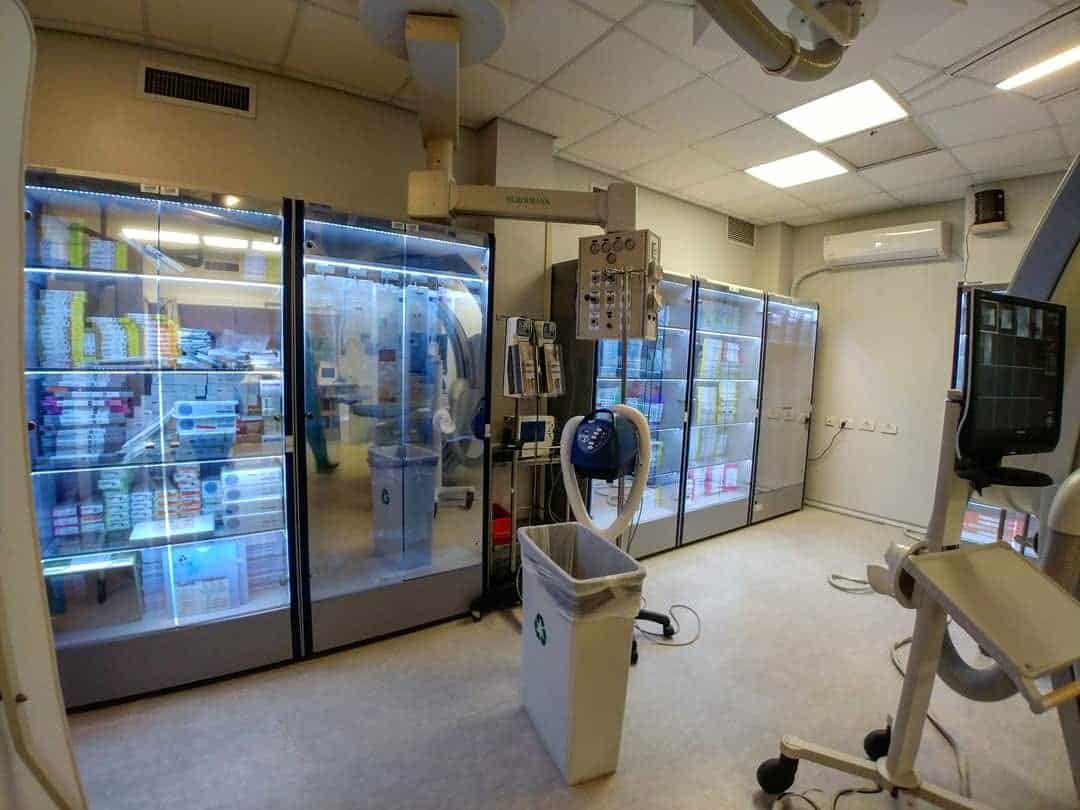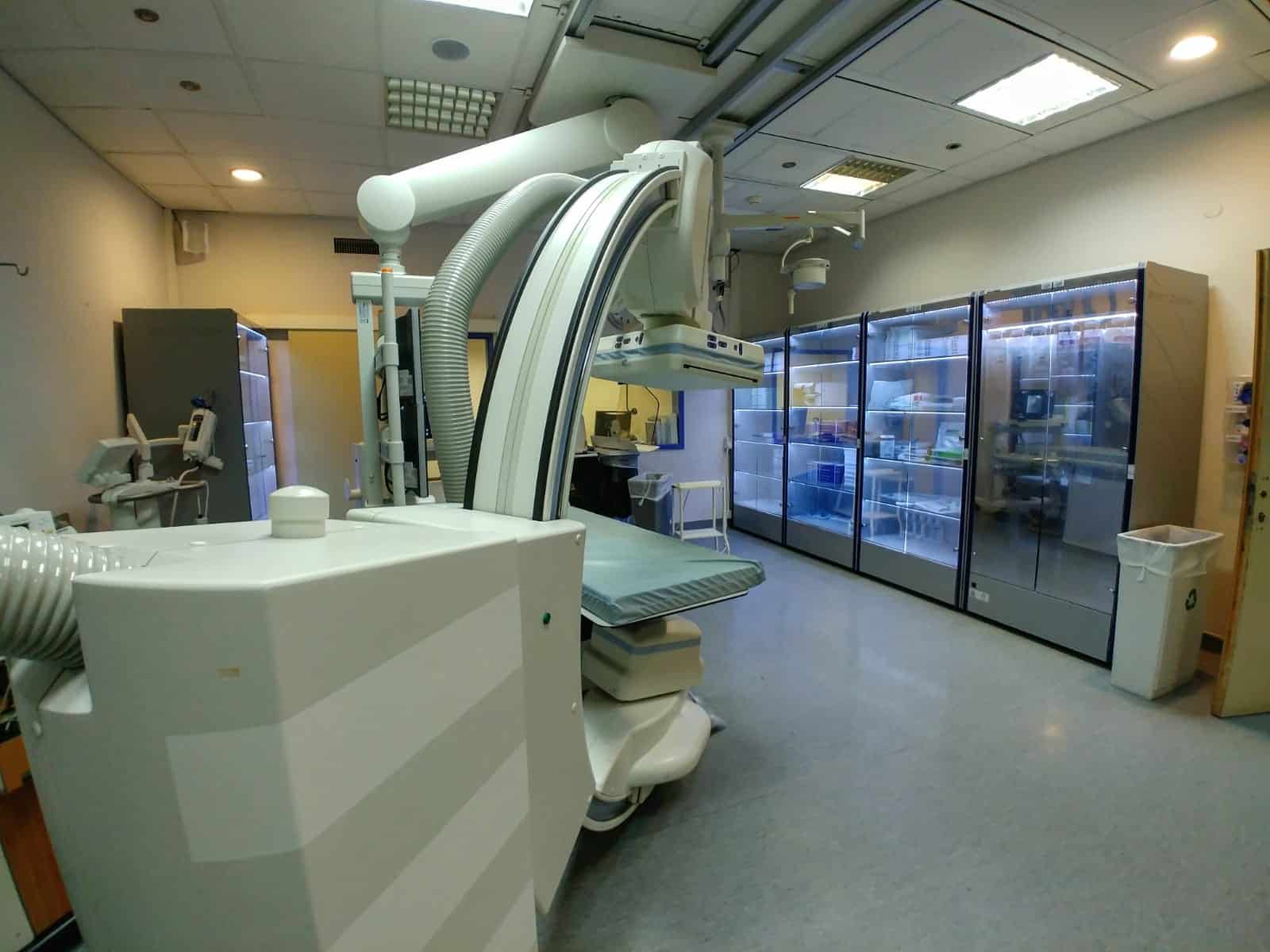What’s inside:
Implant tracking in the healthcare sector ensures efficient inventory management but it also has big implications on patient safety. Expiry management of medical devices and implants is an important element of this. In this article we will look at:
- The impact of inefficient expiry management
- The benefits of automation using an RFID smart cabinet
- Smart cabinets and virtual cabinets
- Manual inventory management v automated inventory management
Managing the expiry of medical devices and implants is a vital task that healthcare providers need to get right. With advancements in technology, new automated options such as RFID smart cabinets and virtual inventory management systems can support hospitals and ambulatory care providers to streamline their expiry management processes.
Traditionally, expiry management has been a mundane, time-consuming task, so adding automation enables staff to focus on their highest priority – the patient.
So, let’s explores the importance of medical device and implant expiry management in healthcare, highlighting the benefits of advanced technologies in automating this crucial task.
The consequences of mismanaged expiry dates
Implant expiry dates need to be continually monitored and stock needs to be rotated so that items are used and don’t expire on the shelves.
The mismanagement of medical device and implant expiry dates can have severe consequences, including:
- Patient Safety: Expired products may pose risks to patient safety, leading to serious adverse events that put patients’ health in danger. The use of expired medical devices can result in infections or cause surgical complications that have a detrimental effect on patients’ health. In addition, healthcare organizations may face litigation and damage to their reputation if patient safety is compromised by their usage of expired devices.
- Wastage: Data has shown that the cost of wastage resulting from expiry management issues can be substantial for healthcare organizations. According to a study published in the Journal of Medical Economics, an estimated $5 billion is wasted annually in the United States alone due to expired medications, medical devices, and implants. Furthermore, the medical inventory wasted all needs to be replenished, so there is additional wastage relating to the purchase of expensive replacement items. If the inventory was managed better this expenditure would not be necessary.
- Litigation: If a ‘never event’ happens, such as an expired item being accidentally used in surgery, then it opens the organization up to the risk of high-dollar litigation. Patients are likely to sue their healthcare provider if they suffer from adverse events related to a consumed expired device.
Preventing the accidental usage of expired products is a vital element of medical inventory management. When effective expiry management procedures are in place, there is a far lower risk of expired products being used in surgery.
Tracking implants in hospitals
Implants play a crucial role in various medical procedures, including joint replacements, cardiac interventions, and orthopedic procedures. Efficiently tracking and managing medical devices and implants is essential for optimizing patient care and minimizing risks.
Traditionally, implant tracking relied on manual methods, which were time-consuming and prone to human errors. However, with the advent of advanced technologies, hospitals now have the opportunity to automate the implant tracking process, ensuring accurate records and timely identification of expiring implants.
Benefits of advanced technology in smart cabinets
RFID smart cabinets represent a significant leap forward in medical device and implant expiry management. These cabinets utilize advanced technologies and include features that make it simpler for clinicians to achieve more accurate expiry monitoring and inventory management. So, let’s explore the benefits of using automated smart cabinets in healthcare.
| Benefit | Impact |
| Real-Time Expiry Monitoring | Smart cabinets use RFID sensors for the real-time monitoring of medical devices and implants stored in each cabinet. The system is able to keep an eye on vital information, such as the expiry date of each item. Inventory reports highlight items nearing expiry and any expired or recalled items that need to be removed from the cabinet. This proactive identification of risky items enables staff to prioritize the usage of soon-to-expire items, and remove unsafe items so that they are not accidentally used. |
| Automation and Workflow Optimization | Smart cabinets streamline the entire inventory management process, from providing real-time vision, to ensuring accurate stock replenishment and usage tracking. Automated alerts and notifications prompt staff to prioritize the usage of items with the soonest expiry date, preventing wastage and protecting patients. The automation of routine tasks not only improves speed and accuracy of inventory monitoring, it also allows healthcare professionals to focus more on patient care, enhancing overall productivity. |
| Cost Savings and Waste Reduction | By eliminating manual inventory checks and optimizing stock levels, smart cabinets help healthcare facilities reduce costs associated with wasted medical devices and implants. When items are wasted there is a high price to pay; the cost of wasted, expired items, plus the cost of the restock order to replace these items, that wouldn’t have been necessary if they had been used in time. The precise tracking of stock levels ensures efficient usage and minimizes overstocking or understocking. Furthermore, the real-time data provided by smart cabinets empowers hospitals to make informed purchasing decisions, reducing unnecessary expenditures. |
| Enhanced Patient Safety | The use of smart cabinets enhances patient safety by minimizing the risk of accidentally using expired or recalled medical devices. Automated expiration tracking significantly improved the effectiveness of checking stock items and ensures that only safe and effective devices are used in patient care. Consequently, patient outcomes are improved, and the reputation of healthcare organizations is safeguarded. |
| Regulatory Compliance | Healthcare organizations must adhere to strict regulatory guidelines, such as the FDA’s UDI regulations. Automated inventory management systems assist in maintaining compliance by generating detailed audit trails, ensuring traceability, and facilitating efficient recall management in the event of a product recall. |
| Data-driven Decision Making | By providing accurate and up-to-date inventory information, smart cabinets can enable healthcare administrators to make data-driven inventory management decisions. These systems provide insights into usage patterns, expiry trends, and demand fluctuations, allowing for effective inventory planning and cost optimization. |
| Supply Chain Integration | Automated inventory management systems facilitate seamless integration with vendors. This integration streamlines the procurement process, enabling automatic replenishment and reducing lead times. Efficient supply chain management further minimizes the risk of stockouts or overstocking, ensuring the availability of medical devices and implants when needed. |
Healthcare supply chain efficiency
Healthcare providers are paying more attention to the medical inventory supply chain, as they see it as an area with many inefficiencies. They also recognize that optimizing the supply chain will reduce costs, improve operational workflows and improve patient safety. Another key benefit is the collection and analysis of inventory data – this is the gamechanger for many organizations – giving them a clear vision of their inventory and providing vital data to support forward planning and day to day management.
Building a more resilient medical supply chain will enable providers to better manage supply chain disruptions and also claw back some savings during a time of crippling inflation.
The expiry management of high-value medical devices, one of the most expensive inventory items, can have a significant impact on hospital finances. When an RFID cabinet is used for the management of medical devices, tissue and implants it has an immediate effect on supply chain efficiency.

Virtual inventory management systems
If smart cabinets are a good solution for high-value medical devices and implants, how can lower value items be managed with the same level of efficiency?
Virtual inventory management systems are a powerful tool for healthcare facilities. With this set-up, items are stored on regular shelves and in standard storeroom layouts. Items are given and RFID tag and a mobile device is used to monitor the items. Data collected is then sent to the managing software.
These mobile inventory management systems leverage cloud-based software to centralize inventory data, providing real-time visibility into stock levels, usage patterns, and expiry dates across multiple locations.

Manual expiry management v automated expiry management
When your inventory management system is a spreadsheet, managing inventory depends upon:
- Time-consuming manual inventory checks
- The accurate inputting of data onto the spreadsheet
- Used items being recorded
- Unused items being returned to the correct cabinet
- Products not being given to other departments
Keeping the information up to date is a time consuming, error-prone task.
There are so many opportunities for error. The spreadsheet can become out of date minutes after the data is keyed in. The accuracy depends upon manual stock checks and error-free data entry.
Once the data is recorded it still needs to be regularly reported on, in order to be useful. So data such as expiry needs to be regularly pulled out.
However, as with all systems, if the core data is not complete and correct then there is only a partial picture of stock that is available and the outputs will not be accurate.
With a smart cabinet all the data is collected automatically and is based on the items that are in the cabinet. Expiry data is captured and automatically highlighted on daily system reports.
Implant and medical device management using automation
Effective medical device and implant expiry management is a critical aspect of healthcare operations, directly impacting patient safety, operational efficiency, cost savings, and waste reduction.
Smart cabinets, and ‘virtual cabinets’ offer innovative solutions that streamline expiry management processes, improve workflow efficiency, and enhance patient care.
By leveraging advanced technologies, healthcare facilities can proactively address expiry management challenges, minimize risks, and optimize the overall quality of care provided.
While some healthcare providers may be slow to adopt new technology, the limitations of manual expiry management methods are clear and sticking to old methods is a false economy due to the high costs and risk involved.
IDENTI’s smart cabinet is easy to implement – it’s literally just ‘plug and play’. The managing software seamlessly integrates with hospital systems ensuring that vital inventory data is shared across the organization for maximum efficiency.
TotalSense provides real-time, accurate data and produces inventory reports that highlight expiring and expired products – ensuring optimum implant expiry management.
Take a look at our short video on automated expiry management:
TotalSense offers end-to-end tracking across the healthcare supply chain. It can be used in many settings such as the cath lab, plastic surgery, ophthalmology, dental, orthopedics, vascular, oral & maxillofacial and more. TotalSense smart cabinet also has an associate virtual cabinet – TotalSense Mobile. This uses the same technology and management system but works for items stored on shelving rather than in cabinets.

Smart versability
With TotalSense there is so much choice and we work to make sure your implant and stock management system is set up to suit your needs and preferences:
- The TotalSense cabinet can be used as a standalone product, or in conjunction with TotalSense Mobile.
- The cabinet can be made in different configurations to suit different sizes and shapes of stock – so it can include shelving, drawers, hanging space and more.
- It can be used for stock items or consignment.
- It can be used for hospital management or offer full inventory vision to supply chain stakeholders.
If your organization is currently managing implants manually, then contact us to discuss a simple way to introduce smart cabinet implant management.






